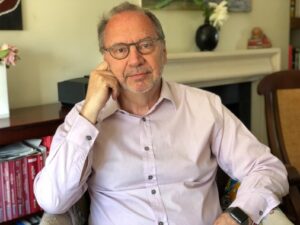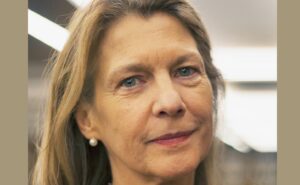By Annette Ekin
There was one science story that dominated 2020 and coronavirus is likely to remain a dominant theme in 2021. But from vaccine rollout to lessons for future pandemics and – that other big challenge that we’re facing – climate change, how will the year in science play out? A selection of scientists speak about lessons from 2020 and what needs to happen in their fields in the coming year.
VACCINE ROLLOUT
To vaccinate people, supply chain disruptions must be fixed – Prof. Gyöngyi Kovács
“Now that we have vaccines, it’s time to think about vaccination – and that’s a massive effort with regards to securing temperature control from manufacturing to vaccine use,” said humanitarian logistician, Professor Gyöngyi Kovács of the Hanken School of Economics in Helsinki, Finland. “Every (coronavirus) vaccine has its own temperature range, and no country or region has an actual choice of what they want to deliver; it’s what they manage to get in time,” she said. “This needs to be a global effort, and one that truly considers equity in health around the world.”
Properly functioning supply chains are crucial not just for coronavirus vaccinations, but also to keep the world moving and tackle multiple new and existing challenges, some exacerbated by the pandemic, such as conflict, food security and climate change. “The pandemic came on top of those but hasn’t eliminated any of them,” she said.
FUTURE PANDEMICS
The EU should urgently establish a health emergency authority – Peter Piot
“The Covid-19 pandemic pointed to the limitations of an ad-hoc approach to health crises: pre-established networks, systems and infrastructure would have enabled a more rapid and coordinated response – crucial in the early phase of an outbreak,” said Professor Peter Piot, director of the London School of Hygiene and Tropical Medicine in the UK, and a special advisor on coronavirus to European Commission President Ursula von der Leyen.
Stronger EU-level collaboration within an international context is essential, he says. “This is why we urgently need to establish an EU Health Emergency Preparedness and Response Authority (HERA), which should support the development and manufacturing of tools against epidemic threats, present and future.”
The coronavirus vaccine campaigns must be done well to build public trust – Prof. Heidi Larson
Coronavirus vaccine campaigns are high on the global agenda, with countries gearing up to vaccinate their populations. “The one big change in my field – understanding the dynamics of vaccine confidence — will be the introduction and roll-out of new Covid vaccines,” said anthropologist Professor Heidi Larson, director of the Vaccine Confidence Project and of the London School of Hygiene & Tropical Medicine, UK.
“It will be crucial to creating foundational trust for vaccines more broadly if we do it well, engaging publics every step of the way.”
We need an ‘Apollo project’ to plan for future pandemics – Marion Koopmans
By the summer, we should see coronavirus vaccination campaigns in different stages, and with massive ramping up of testing and creative planning by businesses and citizens, there should be more freedom to move, says Professor Marion Koopmans, head of the viroscience department at Erasmus University Medical Centre in Rotterdam, the Netherlands. “With that, I think we are going to see light at the end of the (pandemic) tunnel,” she said.
At the same time, she hopes it’ll be a time of reflection, forward planning and rethinking the future. “Science was able to move fast because of investments in basic knowledge decades ago,” she said, but warns that this won’t be the last pandemic. “The changes impacting on our planet will inevitably lead to new diseases,” Prof. Koopmans said. “Let’s make our ability to predict, detect, and control future pandemics our Apollo project.”
CORONAVIRUS FALLOUT
We need Europe-wide studies into the pandemic’s impact on vulnerable communities – Prof. David Baldwin
“We need (Europe-wide) endeavours to understand the differential adverse impact of the pandemic on individuals with previous mental health problems or from Black and minority ethnic communities,” said Professor David Baldwin, head of the mental health group at the University of Southampton, UK.
This includes examining how personal factors – such as socio-economic disadvantage, poor nutrition and vitamin D deficiency – interact with sociocultural factors, including stigma, multi-generation housing and impaired access to mental health services, he says.
We’ll ‘unlock a new era’ in finding molecules to treat rare and neglected diseases – Dr Andrea Beccari
Dr Andrea Beccari from Dompé Pharmaceuticals in Italy manages the drug discovery platform Exscalate4CoV, which used AI to trawl through known drug molecules to find potential coronavirus treatments. He says safe molecules of existing drugs, nutraceutical and natural products present a bounty of opportunities to develop new chemical entities for treating neglected, rare and pandemic-level diseases.
“New development in artificial intelligence on big data and large-scale simulations enabled by the European HPC (high-performance computing) infrastructure will unlock a new era for the valorisation of clinical grade molecules,” he said. Such molecules are a world heritage, says Dr Beccari, that must be exploited to address timely and costly health societal challenges.
BEYOND CORONAVIRUS
Humanities should join the ranks of climate change research – Dr Kristin Aunan
Dr Kristin Aunan, from the Centre for International Climate Research in Norway, expects researchers working in different environmental areas to work together to understand the interlinkages between global warming, air pollution, ocean health and human health. Increasingly, the close links between human, social and Earth systems are being acknowledged, she says, which she thinks means more transdisciplinary research collaboration.
“Particularly, I think the time is ripe for the humanities to join research consortia on climate change in full,” she said, as we need to further understand the behavioural dimension to make research relevant and have an impact. “Understanding what triggers human initiative and action is crucial.”
Work should begin on designing hydrogen passenger aircraft – Dr Josef Kallo
Dr Josef Kallo from the German aeronautical research agency (DLR) says in 2021, work will start on concepts for green, passenger hydrogen aircraft. He says this based on the work of the projects HEAVEN and MAHEPA, which he’s part of, and the flight testing – completed in October 2020 – of HY4, the first passenger hydrogen aircraft of the company H2FLY. “We (now) know that is possible to fly emission free with up to 40 passengers at 2,000 km range,” he said.
This article was originally published in Horizon, the EU Research and Innovation magazine.









Click here to change your cookie preferences